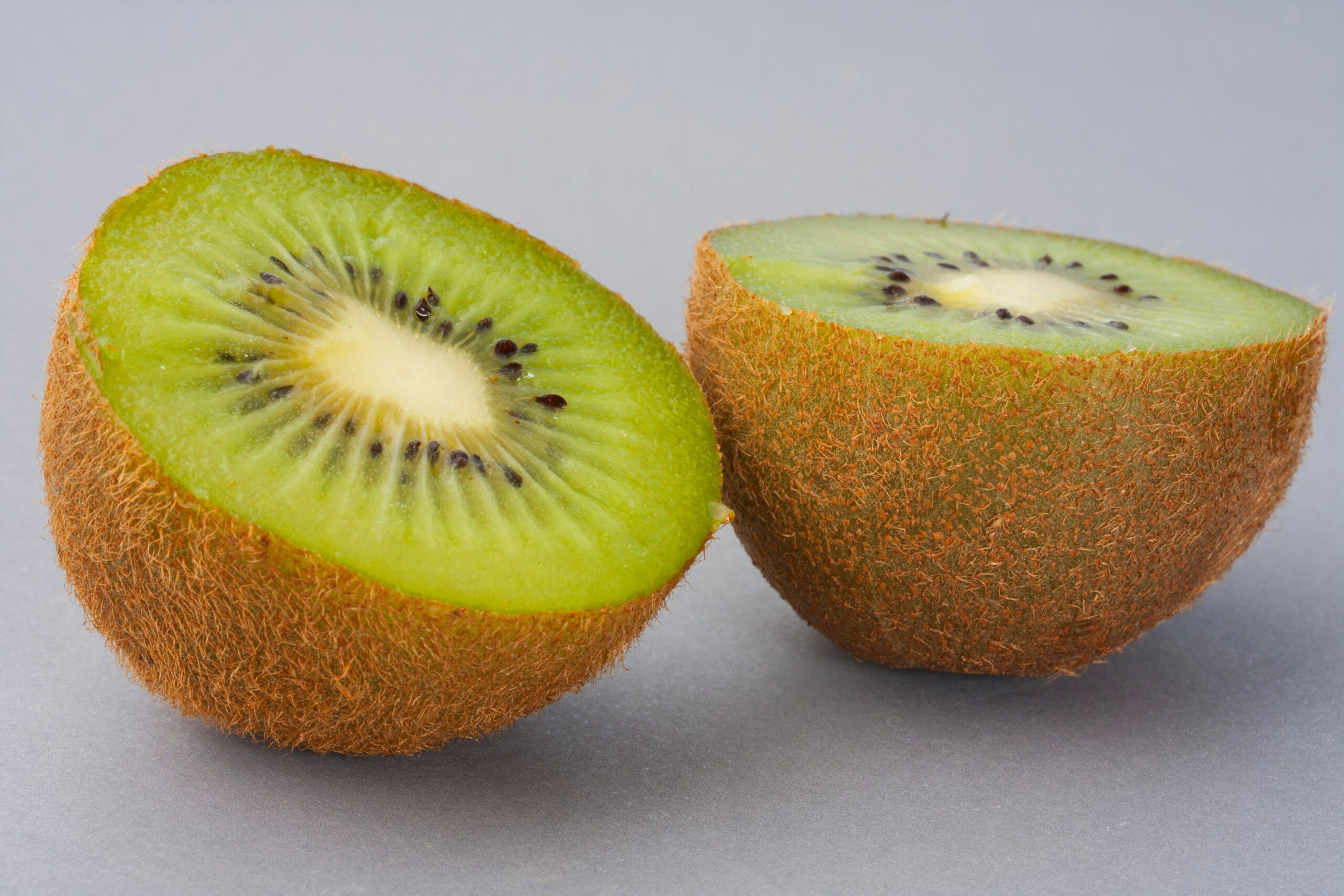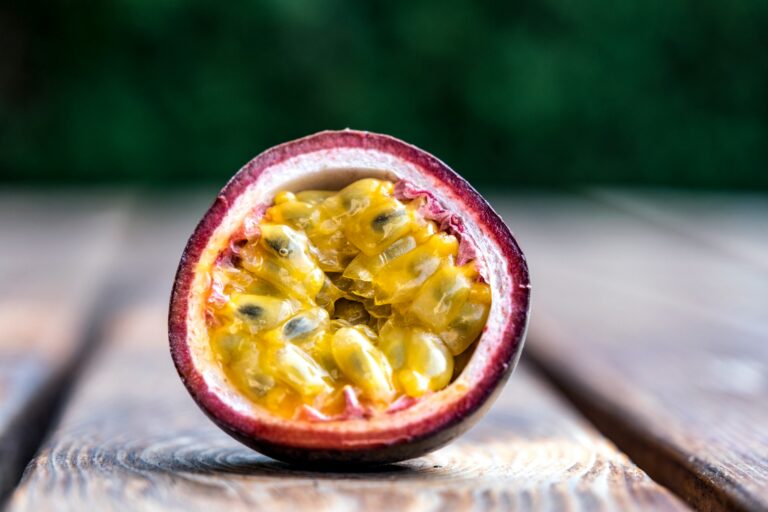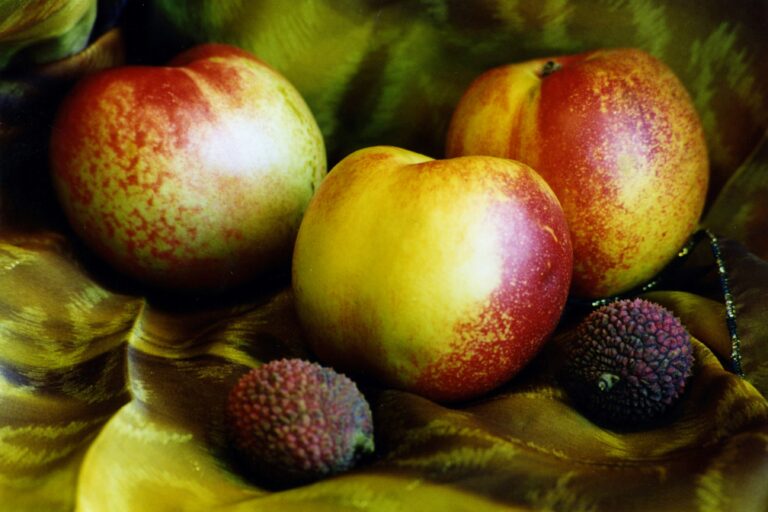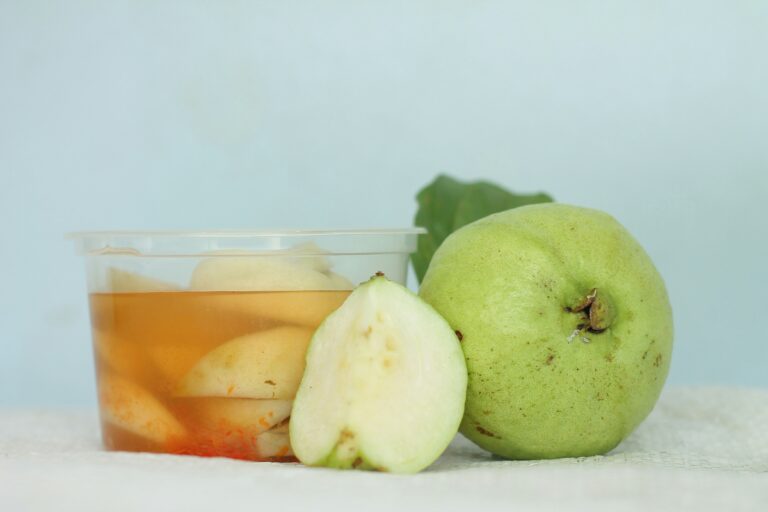The scientific name of the kiwi is Actinidia deliciosa. Kiwi is grown commercially in California and New Zealand. This fruit is native to Taiwan, Korea, Japan, temperate eastern Asia, and China. Kiwifruit has its roots in China. Another name for kiwi is Chinese gooseberry, the edible berry of several species in the genus Actinidia.
Color: Kiwi has a green color with brown skin. It has a nice golden-brown color.
Shape: Kiwis are oval in shape. They are pear-shaped fruits.
Size: Kiwis are larger in size than a hen’s egg of about 5-8 cm in length.
Flavor: Kiwi tastes mix with a flavor of strawberry, banana, and pineapple.
Nutrients
Kiwi contains beneficial nutrients and has an impressive nutrient profile. One hundred grams serving of the flesh of a raw kiwi contains the following beneficial nutrients:
- Calories 64
- Fiber 3 g
- Vitamin E 9% of the daily value
- Vitamin C 83% of the daily value
- Protein 1 g
- Carbohydrates 14 g
- Potassium 4% of the daily value
- Magnesium 4% of the daily value
- Vitamin K 34% of the daily value
- Fat 0.44 g
- Folate 7% of the daily value
- Copper 15% of the daily value
| How to grow kiwi? |
Health Benefits of Kiwi
Kiwis contain copper, vitamin K, potassium, folate, and a fat-soluble nutrient with antioxidant effects. They also play an important role in immune health and are exceptionally high in vitamin C.
Benefit heart health
Kiwi is a nutritious fruit that can be a valuable addition to your diet, particularly for supporting heart health. Consuming kiwis may help lower the risk factors associated with heart disease, such as high blood pressure. Additionally, kiwis can aid in preventing platelet accumulation, which may reduce the risk of atherosclerosis. Enjoying kiwis is a delicious way to take care of your health.
Excellent source of Vitamin C
Kiwi contains a high amount of vitamin C, which helps to protect the cells from oxidative damage and plays many other important roles in the body. Other older studies showed that eating kiwi is effective for increasing vitamin C levels in the body. Vitamin C is critical for immune function. Eating food rich in vitamin C, like kiwi, can help promote optimal immune function.
Benefits digestive system
Kiwi contain both insoluble and soluble fiber. Kiwi contain about one-third soluble and two-third insoluble fiber. Fiber contain water content and swell more than other types of fibers like apple fiber and wheat brain, that’s a good choice for improving stool consistency. Soluble fiber helps to benefit gut bacteria, heart health and blood sugar regulation.
Improve eye health
Kiwi also benefits eye health. It reduce the risks of age-related eye concerns such as cataracts and macular degeneration. The zeaxanthin and lutein found in kiwi helps to reduce the oxidation in the eye. Vitamin C helps to play a key role in eye structure and eye health. It also reduce the inflammation. Kiwi offers a high bioavailability.
Side Effects of Kiwi
Eating kiwi is beneficial for health, but taking them in amounts greater than the normal may lead to serious complications like
Women should avoid adding kiwi to their diet during breastfeeding and for pregnant women.
- Troubleswallowing
- Hives
- Vomiting
FAQ’s
When not to eat kiwi?
Kiwi should be avoided by individuals with kiwi allergies or latex allergies. Additionally, those with a history of kidney stones should avoid eating kiwi, especially the skin, as it contains oxalates that can contribute to stone formation.
How many kiwifruits can I eat per day?
There’s no strict limit to the number of kiwifruits you can eat in a day, but it’s generally recommended to eat them in moderation as part of a balanced diet. Two kiwifruits a day is often considered a safe and healthy amount for many people.
Is kiwi good for the skin?
Yes, kiwifruit can be beneficial for the skin due to its high vitamin C content, which stimulates collagen production, and its moisturizing properties. Kiwi also acts as a natural exfoliant and antioxidant, protecting the skin from damage.






